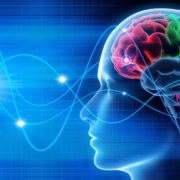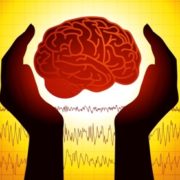Depression Causing Weight Gain — Anew Era TMS & Psychiatry
It is hard enough facing each day feeling the effects of depression. Depression can leave you feeling depleted in spirit, absent of energy, and completely disheartened. But add weight gain to the scenario, which is a common symptom of depression, and now you feel both miserable and chubby.
Changes in eating habits, along with fatigue and changes in sleep patterns, are symptoms often associated with major depressive disorder. When increased appetite accompanies the depression, causing weight gain, feelings of despair only become magnified and the cycle continues to repeat. Comfort food, especially carbs, may offer a temporary salve to the mood disorder, but depression causing weight gain is the unfortunate result.
In addition to an uptick in the desire for sweets and snacks, the antidepressant medication may be contributing to the weight gain. Antidepressants come with a long list of adverse side effects, weight gain being one of the most reviled effects. To make matters worse, the medication often doesn’t help the depression, leaving the individual with a thicker waistline and nothing to show for it.
For individuals who are resistant to the clinical effects of antidepressants, seeking other types of treatment for depression is in order. One of the most promising alternative approaches to treating medication-resistant depression is called transcranial magnetic stimulation, or TMS. TMS offers a noninvasive, drug-free option for treating depression that continues to demonstrate its effectiveness.
About Major Depressive Disorder
Major depression is the second most prevalent mental health disorder diagnosed in the U.S. with over 17 million adults struggling with the disorder each year, or about 7% of the adult population. Depression with major impairment in daily functioning impacts 11 million of these individuals. Additionally, 3.2 million adolescents are diagnosed with depression.
Diagnosis of depression rests on the persistent presence of symptoms that last over two weeks in duration. A depression diagnosis involves at least five of the following symptoms being present most of the time over the two-week or longer period of time:
- Feeling sad, despairing, despondent, hopeless
- Change in eating habits resulting in significant weight gain or loss
- Fatigue
- Change in sleeping habits, over sleeping or insomnia
- Slowed cognitive and motor functioning
- Loss of interest in the activities once enjoyed
- Irritability
- Difficulty concentrating
- Feelings of worthlessness, guilt, or shame
- Difficulty making decisions
- Recurrent thoughts of suicide or death
About Antidepressants and Side Effects
Antidepressant drug therapy is still considered to be the cornerstone of depression treatment. Unfortunately, only about half the patients who trial antidepressants find that the medication helps alleviate their depression symptoms. Attempts are made to trial other types of antidepressants or to adjust dosage, but generally antidepressants are only effective in 50% of depression patients.
Antidepressants also come with a host of side effects. While the severity of the side effects varies among patients, many will find the side effects to be intolerable. When depression causing weight gain is exacerbated by the medication, many will discontinue treatment. Antidepressant side effects may include:
- Weight gain
- Sexual dysfunction
- Fatigue
- Nausea
- Dry mouth
- Blurred vision
- Insomnia
How TMS Therapy Can Help
TMS is a fairly recent treatment option for individuals with medication-resistant depression. FDA-cleared in 2008, TMS therapy has benefited tens of thousands of people over the past decade. TMS is a brain stimulation technique that is non-surgical and therefore requires no anesthesia or recovery period. The therapy is safe, effective, and tolerated well by patients.
During a TMS therapy session, the patient will be seated and fully alert in an office setting. A coil is positioned over the left prefrontal cortex region of the brain where the mood center is located. During the 40-minute session, the patient will feel the sensation of a light tapping on the scalp due to the repetitive magnetic pulses emanating through the coil.
As the magnetic fields become converted to electrical currents, they penetrate the brain tissue to a depth of about 2 centimeters, targeting the sluggish neurons in order to “jumpstart” their activity. Over the 4-6 week treatment period, this eventually helps brain chemistry to be rebalanced, leading to a reduction of the depression symptoms, including the fatigue that may have contributed to weight gain.
TMS therapy is an excellent alternative to explore for treating depression if antidepressants were either ineffective or the adverse effects intolerable. As one’s overall mood improves, the appetite and eating habits should normalize, energy levels improve, sand sleep quality is restored.
Anew Era TMS & Psychiatry is a Leader in TMS Depression Treatment
Anew Era TMS & Psychiatry offers expert TMS therapy for treating medication-resistant depression. Using the power of magnetic fields to help reset balance in brain chemistry, the dedicated doctors at Anew Era TMS & Psychiatry are committed to helping patients improve functioning and quality of life. For more information about TMS therapy or questions about depression causing weight gain, please contact us at Anew Era TMS & Psychiatry today at (888) 503-1549.











